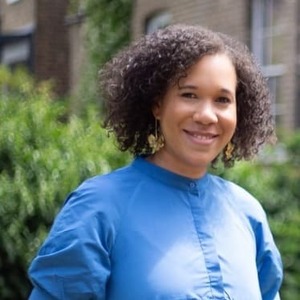You are viewing your 1 free article this month. Login to read more articles.
No regrets: why publishing must be unafraid of mistakes
As I get older, I’m learning to accept the missteps and missed opportunities that have helped me to grow.
There’s a quote I like to look at a lot from Toni Morrison. She says: “For me, success is not a public thing; it’s a private thing. It’s when you have fewer and fewer regrets.”
I have been thinking about this quote a lot recently. Maybe it’s because I am staring down the shotgun barrel of late 30s hurtling towards the big 4-0 and thinking of all the sensible things I did that I wish I hadn’t and all the unreasonable things I did that I wish I hadn’t, but there comes a time in every person’s life and career when you’ve been around a while and you start to think not about the things you’ve achieved, but the things you haven’t. Or, if you’re like me – defining yourself not by the trophies but the mistakes.
I spend a lot of time thinking about my mistakes. Before bed most nights, I will fall asleep to the analysis replay of every interaction, scanning it for the things I should have said, could have said better, could have done, should have done — should NOT have done— and say a prayer that I will learn from all of this and do it differently the next day. Except I don’t and the prayer gets even longer.
Maybe it’s no wonder that our industry is attractive to people like me, who give so much energy to all the things we did wrong, or all the ways we could have done things better
And yet of all the industries I chose to enter, it was publishing, which feels as if it spends every year of its existence doing the same thing but on a macro bank-breaking level. It gives hours, lifetimes, finances and energy that could probably push a developing nation into a competitive global GDP, into looking at all the things which didn’t work: the misses of a campaign; the covers that didn’t quite find the mark; the prizes it didn’t get; the submissions it lost; the books that didn’t work despite the sincerity of the promises we made.
So maybe it’s no wonder that our industry is attractive to people like me, who give so much energy to all the things we did wrong, or all the ways we could have done things better. Who spend it worrying they are constantly failing or disappointing someone somewhere, and maybe that is why we spend so much of ourselves defining who we are by the breadth and shape of our mistakes.
I still remember the time I said c**t instead of count in an email to a US publisher. That missing O has sliced away at my sleep for a long time. I could write essays on books I didn’t sell in the early years of my career because I didn’t trust my gut; the bestsellers I didn’t get that had me sinking into a 4 p.m. drink of wine, the clients I lost sometimes mutually and sometimes not; the submissions I didn’t win that felt as if they could be career altering.
Nearly a year ago, I was lucky enough to win Agent of the Year at the British Book Awards but I didn’t celebrate. Maybe because it was lockdown and I found out in my living room with a Sky Documentary on Tina Turner paused mid-way through, but I cried. I actually cried afterwards devastated, because when I imagined such a seminal moment, I saw myself as a person who was so confident in their choices. Who was at the stage where mistakes and errors were a rookie thing of the past. A person older and wiser, who naturally carried the aroma of F-U to anything or anyone that contradicted that innate core.
That was definitely not me. And I have spent therapy sessions, and years — literal years of my life — desperate to avoid making a mistake. I flagellate over every single thing I ever do wrong, from mispronouncing a name to double booking a lunch, to forgetting to buy paracetamol on the way home.
And actually if we are honest with ourselves, we do that too as a business. We praise all those with the least mistakes, equating that with the most success but that’s not true.
Mistakes and regrets are actually two different things. Mistakes are how we learn; how we grow. Perfection is paralysis – it doesn’t develop, it doesn’t breathe. It is creative stagnation. It is unachievable, unattainable and frankly boring. Mistakes are mutable – what may be seen as an error in one light, can actually be the crack that opens something up new and allows a difference to emerge. It’s what makes us human and find connection. And what is the power of books without that?
Now, regret is different – regret is guilt. Regret is harm. For me, regret feels like something lost, something you’ll never be able to undo. It is a fixed point where you could have made a better choice and you didn’t and the only way to heal that fissure is to ensure it doesn’t happen again.
So do I regret making the mistake of asking someone if we could c**t that as reasonable instead of count? No – because I can tell you now, that mistake made me much more rigorous when writing and checking my emails. Mistakes tell me when I am overtired, or when something is off and I need to look again. Mistakes are intel which we can all use to be better. Mistakes are the warning signs before the regrets come in.
And I don’t regret most of my choices. Sometimes I wish I had done things better or had things go another way but for the most part I am who I am because of those experiences and actually it’s good for the soul not to win every time. To have someone else be better than you, so you have someone making you run that must faster; try that much harder. Having contemporaries who make you up your game instead of fall into complacency.
We are more than the sum of our mistakes both within this industry and outside of it. We are also our intentions; our sincerity, our truths. We are bigger than our bottom lines and more meaningful than a stack of glittery nominations or awards.
We are the hours unspoken but always seen in the final product. The answers that assuage; the gesture that connects. We are the ideas that spark and the conversations that ignite. Sometimes we get it wrong, but at least we keep trying.
And that I do not regret.





















